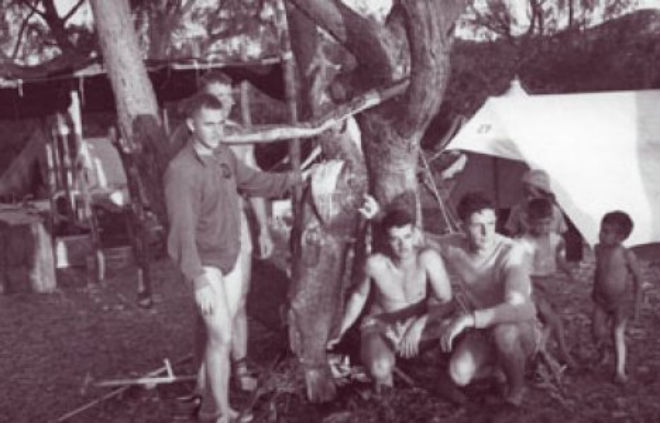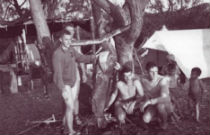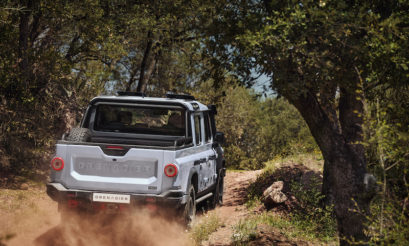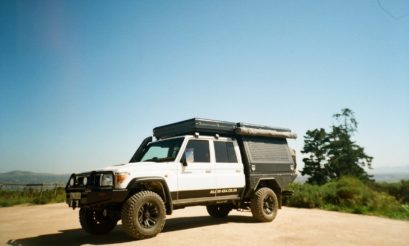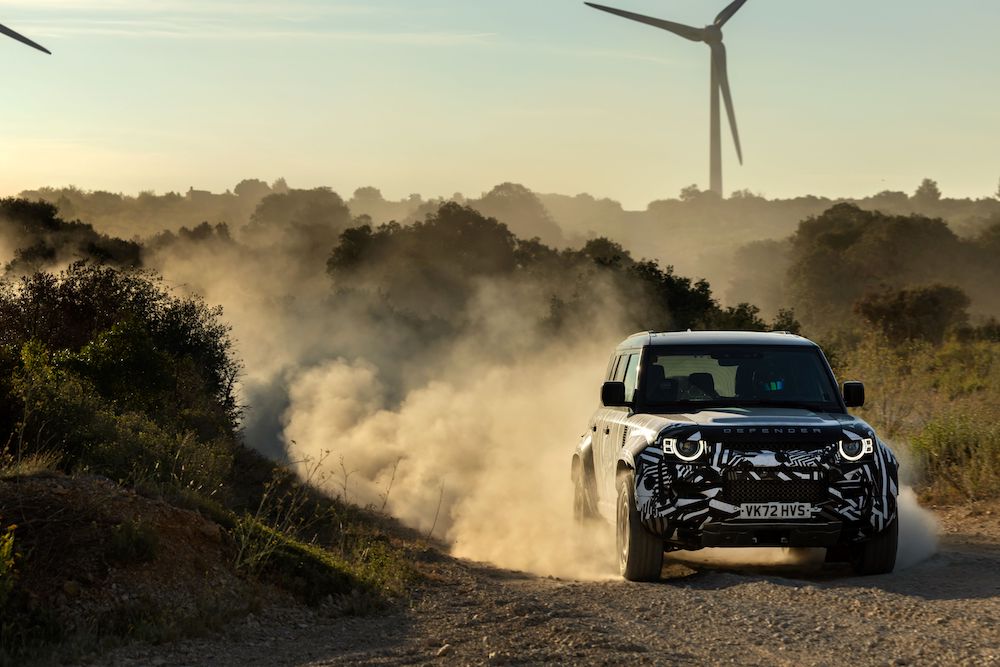Text: Lex Smuts
Photography: Lex Smuts and friends
During the late 1950s the Exploration Club at the University of Pretoria was involved in organising an annual “Skindiving and Spearfishing” trip to Mozambique coast during the winter holidays. The intention was to accommodate a group of 20 or more students on one of the coastal islands for about three weeks, camping, swimming and diving to their hearts’ content.
The logistics to achieve this seemed quite extensive and costly, even in those days. Yet the opposite proved true and the event began to draw students from as far away as Rhodes, Cape and Natal universities.
To me the most memorable holiday was the trip to Margaruque Island, near Bazaruto, in 1959. I was on the executive committee of the club at that time and thus have sharper memories than usual of the trip.
Transport proved the least of our worries. This was due to a fortuitous collection of incidents that provided an unusual and very successful solution. A Mister Gradwell of Gradwell Storage and Long Distance Removals offered a pantechnicon for the journey. We only had to pay for the diesel.
Mr Gradwell, himself a keen fisherman, visited his friend Joaquim Alves every year at this time for a fishing holiday. Mr Alves just happened to be the resident millionaire in Vilanculos and the owner of the hotel on Paradise Island.
Vilanculos was the nearest “harbour” to Bazaruto and, after negotiations, Mr Alves provided a campsite, tents, beds and other facilities for the three weeks on the nearby island of Margaruque.
Prior to the departure for the island there was a scurry of activity as equipment was obtained and prepared. A 12-man dingy was “borrowed” from contacts in the military, who kindly turned a blind eye for the loan period.
Spearfishing and diving equipment was the responsibility of the students and as this was before the age of commercial aqualungs et al most was rather primitive and often home-made.
Agreement was reached with the medical department at the University of Pretoria, who supplied a comprehensive first aid kit and a medical student to go with it, as well as surgical rubber for the spearguns.
The marine biology section, not to be outdone, supplied the definitive fish book by a Professor Smith, and a series of experiments they wished to be conducted.
The amount and variety of food required was carefully calculated, with a generous allowance for the many fish we were going to catch.
Departure day arrived and all cargo was loaded as near to the front of the cargo-hold of the van as possible. After the usual last minute panic, a safety net was fitted over the open loading door and with the Gradwell party manning the cabin, all the students were bundled into the remaining space in the cargo hold and we were off.
The trip down to “LM” (now Maputo) was unusual, to say the very least. Imagine a furniture van full of students stopping at a roadside café or garage with plenty of urgent requirements. Every stop was an adventure of its own.
The journey itself was spent talking, singing (one of the students had a guitar), playing cards, reading, sleeping in one of the several hammocks slung at the rear of the van, or just lying around.
The Portuguese officials at the Komatipoort border post were not keen to speak English or Afrikaans and seemed reluctant to let us through. However, they certainly were effective and knew what they wanted. We had learned on previous trips not to make “funny remarks”, as this invariably led to long delays while everything was unpacked and carefully searched, even to the extent of digging fingers into tinned milk-powder.
A friendly approach worked wonders and the transition on this occasion went smoothly. The border formalities taken care of we piled aboard and headed for LM where we would spend the night.
Our arrival at the campsite in LM caused quite a sensation. The officials did not agree that a furniture van was a camping vehicle and it was only after outside help was called in through local contacts that we were allowed to park near the ablution blocks. Accommodation was arranged for the ladies, everyone did their necessities and we headed for town. For this purpose extra busses were required to transport our entire party to town.
We had decided earlier to always stick together as a group but this had a marked effect at every eating establishment we visited. Many and varied were the reactions. A few even bluntly refused to let us in, especially towards the end of the evening.
Others obviously saw a fortune in the making, considering how much students can eat and drink. After the mandatory visit to the famous (infamous?) nightclubs we headed back to the campsite.
The busses had ceased to run, there was a scarcity of taxis and we had no option but to walk the five kilometres back to camp.
Our noisy progress was bound to attract attention and very soon the police arrived in two squad cars to investigate. Fortunately they saw the humour of the situation and escorted us back to camp.
The next morning we boarded the van and headed north on a good tar road to our next stop at Xai-Xai where we would lunch at a recommended eatery. After an uneventful journey we arrived at our destination.
The effect of such a large crowd of unexpected customers had the restaurant owner in a fit. Muttering curses he ran around shouting at all and sundry. Fortunately he was pacified by his wife and, with help called in from the local populace, a really excellent Portuguese fish-and-prawn meal was provided.
Lunch completed, everyone involved in the lunch posed by the van for photos, waved farewells and we were off to Vilanculos on two strips of tar road that proved adequate – except for when there was oncoming traffic. That needed some manoeuvring. Nobody, however, was inclined to argue with a truck full of students.
A relaxed and pleasant trip saw us arrive at Vilanculos, where we met up with the first of the two pre-arranged groups that would join us on the island: members of the Transvaal Underwater Research Group (TURG), some with their families.
